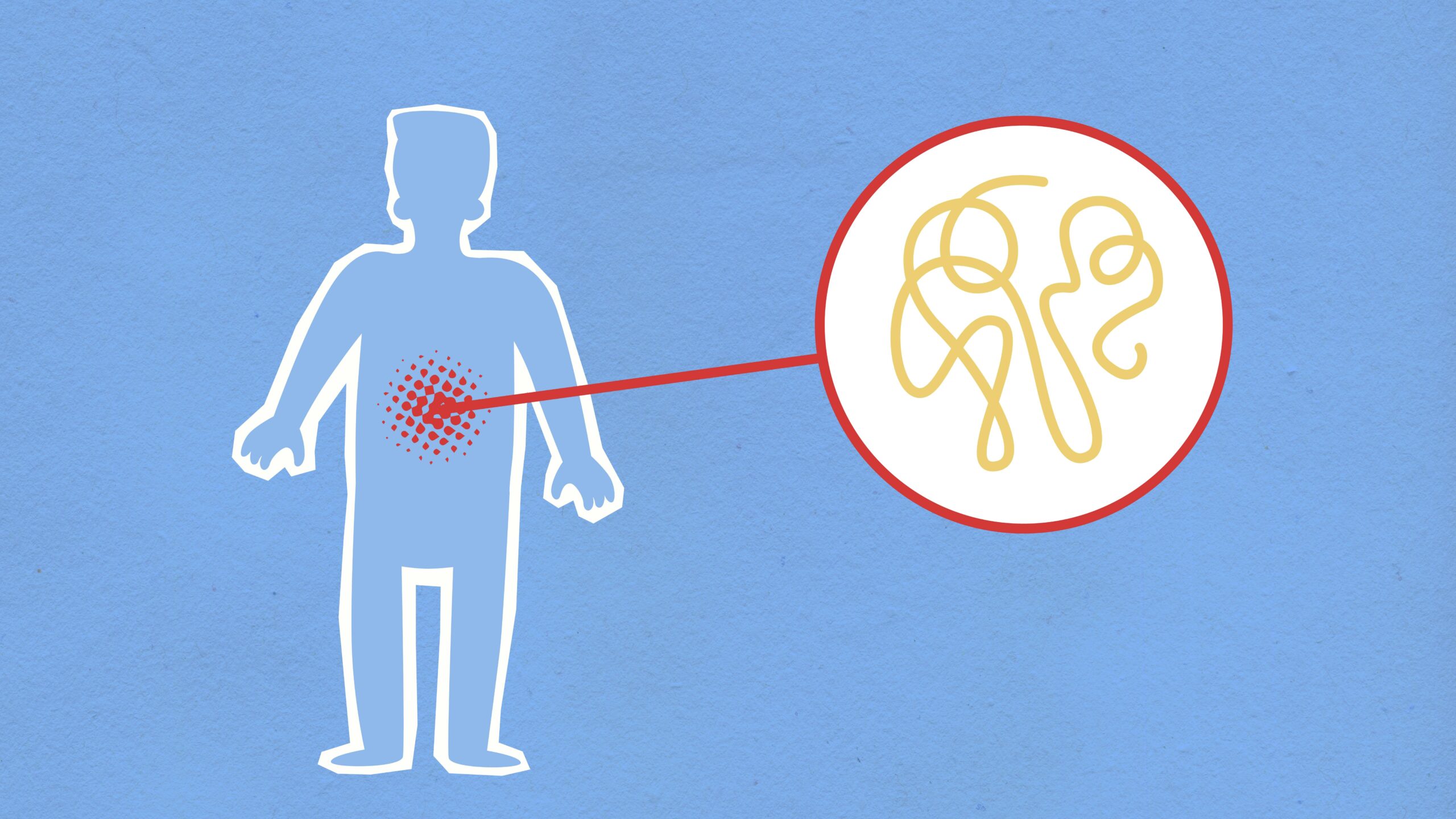The convergence of biology, computer science, and data analytics is transforming healthcare, ushering in an era where treatments are tailored to individual genetic profiles.
Personalized medicine represents one of the most promising frontiers in modern healthcare, moving away from the traditional “one-size-fits-all” approach toward treatments specifically designed for individual patients. At the heart of this transformation lies bioinformatics—a multidisciplinary field that combines biological data with computational tools to unlock unprecedented insights into human health and disease. This revolution is not just theoretical; it’s actively reshaping how we diagnose, treat, and prevent illnesses across the globe. 🧬
The Foundation: Understanding Bioinformatics in Healthcare
Bioinformatics serves as the critical bridge between raw biological data and actionable medical insights. With the human genome containing approximately 3 billion base pairs and each individual possessing unique genetic variations, the sheer volume of data requires sophisticated computational approaches to interpret and utilize effectively.
This field encompasses various technologies and methodologies, including genomic sequencing, protein structure analysis, metabolomics, and systems biology. By applying algorithms, statistical models, and machine learning techniques to biological datasets, bioinformatics enables researchers and clinicians to identify patterns that would be impossible to detect through traditional observation alone.
The integration of bioinformatics into clinical practice has been accelerated by several factors: the dramatic reduction in DNA sequencing costs, increased computational power, development of sophisticated analytical software, and the establishment of comprehensive biological databases. What once took years and millions of dollars—sequencing a complete human genome—can now be accomplished in days for under a thousand dollars.
Decoding Individual Genetic Blueprints 🔬
At the core of personalized medicine is the ability to understand each person’s unique genetic makeup. Bioinformatics tools allow healthcare providers to sequence and analyze an individual’s genome, identifying genetic variants that may predispose them to certain diseases or influence how they respond to specific medications.
Pharmacogenomics, a key application of bioinformatics in personalized medicine, examines how genetic variations affect drug metabolism and response. This knowledge enables physicians to prescribe medications with greater precision, avoiding adverse reactions and improving therapeutic outcomes. For instance, genetic testing can reveal whether a patient metabolizes a drug too quickly or too slowly, allowing for appropriate dosage adjustments.
Beyond single-gene analysis, bioinformatics enables the study of polygenic risk scores—assessments that consider multiple genetic variants simultaneously to estimate disease susceptibility. These comprehensive evaluations provide a more nuanced understanding of individual health risks than traditional genetic testing focused on single mutations.
Transforming Cancer Treatment Through Precision Oncology
Perhaps nowhere is the impact of bioinformatics-driven personalized medicine more evident than in cancer care. Tumor genomic profiling has revolutionized oncology by revealing that cancers sharing the same anatomical location can be molecularly distinct, requiring different treatment approaches.
Through comprehensive genomic sequencing of tumor samples, bioinformatics platforms identify specific mutations driving cancer growth. This information guides the selection of targeted therapies designed to attack cancer cells while sparing healthy tissue, significantly improving treatment efficacy and reducing side effects compared to traditional chemotherapy.
Liquid biopsies represent another breakthrough enabled by bioinformatics. These non-invasive tests detect circulating tumor DNA in blood samples, allowing for early cancer detection, treatment monitoring, and identification of emerging resistance mechanisms—all without requiring surgical tissue samples.
Predictive Analytics: From Reactive to Proactive Healthcare
Bioinformatics is shifting the healthcare paradigm from reactive treatment to proactive prevention. By analyzing genetic data alongside lifestyle factors, environmental exposures, and clinical history, predictive models can identify individuals at elevated risk for specific diseases long before symptoms appear.
This predictive capability enables early intervention strategies that can prevent disease onset or detect conditions at their most treatable stages. For cardiovascular disease, diabetes, Alzheimer’s, and numerous other conditions, genetic risk profiling combined with lifestyle modifications can significantly alter disease trajectories.
Machine learning algorithms trained on vast datasets continuously improve these predictive models, identifying subtle patterns and relationships that human analysis might miss. As these systems incorporate more diverse data—including microbiome composition, epigenetic markers, and real-time health monitoring from wearable devices—their predictive accuracy continues to advance.
The Data Challenge: Managing Biological Big Data 💾
The revolution in personalized medicine generates unprecedented volumes of data. A single whole-genome sequence produces approximately 200 gigabytes of raw data, and comprehensive multi-omics approaches—integrating genomics, transcriptomics, proteomics, and metabolomics—multiply this exponentially.
Bioinformatics infrastructure must address several critical challenges related to this biological big data:
- Storage and accessibility: Maintaining secure, accessible repositories for vast quantities of sensitive health information
- Integration: Combining diverse data types from multiple sources into cohesive analytical frameworks
- Standardization: Ensuring data compatibility across different platforms and institutions
- Analysis speed: Processing complex datasets within clinically relevant timeframes
- Interpretation: Translating computational findings into actionable clinical insights
Cloud computing platforms and distributed database systems have emerged as essential solutions, enabling healthcare organizations to manage these data challenges without prohibitive infrastructure investments. Collaborative initiatives like the Global Alliance for Genomics and Health work to establish standards facilitating data sharing while protecting patient privacy.
Artificial Intelligence: The Next Frontier
Artificial intelligence and machine learning represent the cutting edge of bioinformatics applications in personalized medicine. These technologies excel at identifying complex patterns within multidimensional biological data, uncovering relationships that traditional statistical approaches cannot detect.
Deep learning algorithms have demonstrated remarkable capabilities in image analysis for diagnostic pathology, predicting protein structures from genetic sequences, and identifying novel drug targets. Natural language processing systems extract valuable insights from unstructured clinical notes and medical literature, connecting individual patient characteristics with relevant research findings.
As AI systems become more sophisticated, they’re increasingly capable of generating personalized treatment recommendations by integrating individual patient data with comprehensive medical knowledge bases. These clinical decision support systems augment physician expertise, highlighting therapeutic options that might otherwise be overlooked.
Overcoming Implementation Barriers 🚧
Despite its tremendous potential, widespread implementation of bioinformatics-driven personalized medicine faces several significant obstacles. Addressing these challenges is essential for realizing the full promise of this approach.
Cost remains a consideration, though continuously declining. While genetic testing prices have dropped dramatically, comprehensive multi-omics profiling and ongoing data analysis still represent significant expenses. Healthcare systems must determine how to allocate resources effectively and establish reimbursement frameworks that support personalized approaches.
The shortage of trained professionals capable of bridging clinical medicine and computational biology creates bottlenecks in implementation. Medical curricula increasingly incorporate bioinformatics education, but the demand for professionals with interdisciplinary expertise far exceeds current supply.
Ethical considerations around genetic data privacy, consent, and potential discrimination require careful navigation. Patients must understand how their genetic information will be used, stored, and protected. Regulatory frameworks continue evolving to address these concerns while enabling beneficial research and clinical applications.
Real-World Success Stories: Personalized Medicine in Action
Numerous examples demonstrate the tangible benefits of bioinformatics-enabled personalized medicine already improving patient outcomes. In rare disease diagnosis, whole-exome sequencing combined with sophisticated bioinformatics analysis has ended diagnostic odysseys for thousands of families, identifying causative mutations for conditions that eluded conventional testing.
For cystic fibrosis, genetic profiling identifies specific CFTR mutations, enabling treatment with targeted therapies like ivacaftor that address the underlying genetic defect rather than just managing symptoms. Patients with specific mutations experience dramatic improvements in lung function and quality of life.
In psychiatry, pharmacogenomic testing helps clinicians select antidepressants and other psychiatric medications with higher likelihood of effectiveness and lower risk of adverse reactions for individual patients. This precision approach reduces the trial-and-error period often associated with psychiatric treatment, providing faster relief for patients.
Preventive cardiology increasingly incorporates genetic risk scoring alongside traditional risk factors, identifying individuals who benefit most from aggressive cholesterol management or other preventive interventions, even when conventional risk calculators suggest lower priority.
The Expanding Toolkit: Emerging Technologies and Approaches 🔧
The bioinformatics landscape continues evolving rapidly, with emerging technologies expanding the possibilities for personalized medicine. Single-cell sequencing techniques reveal cellular heterogeneity within tissues, providing unprecedented resolution for understanding disease processes and treatment responses.
Spatial transcriptomics maps gene expression patterns within their physical tissue context, illuminating how cellular interactions influence disease development and therapeutic responses. This spatial dimension adds critical context missing from traditional bulk tissue analysis.
Long-read sequencing technologies overcome limitations of earlier methods, detecting structural variants and complex genomic regions previously difficult to analyze. These advances reveal additional layers of genetic variation influencing health and disease.
Multi-omics integration—simultaneously analyzing genomic, transcriptomic, proteomic, metabolomic, and microbiome data—provides comprehensive molecular portraits of individual patients. Bioinformatics platforms increasingly incorporate these diverse data streams into unified analytical frameworks, revealing system-level insights impossible from any single data type.
Building the Infrastructure for Tomorrow’s Healthcare
Realizing the full potential of personalized medicine requires robust infrastructure spanning technology, policy, education, and clinical practice. Health systems are investing in genomic medicine programs that integrate bioinformatics capabilities throughout the care continuum.
Electronic health record systems are being redesigned to incorporate genomic data seamlessly alongside traditional clinical information, making personalized insights readily available at the point of care. Clinical decision support tools embedded within these systems provide real-time guidance based on individual genetic profiles.
Biobanks linking biological samples with longitudinal health data create invaluable resources for research advancing personalized medicine. These repositories enable discovery of new genetic associations, validation of predictive models, and development of novel therapeutic approaches.
International collaboration accelerates progress by pooling data and expertise across borders. Global research consortia studying specific diseases or populations generate insights no single institution could achieve independently, ensuring personalized medicine benefits diverse populations worldwide.
Empowering Patients Through Genetic Literacy 📚
As personalized medicine becomes increasingly mainstream, patient education and engagement become critical success factors. Individuals need sufficient genetic literacy to understand test results, participate meaningfully in treatment decisions, and manage their health proactively based on genetic insights.
Genetic counseling services help patients navigate complex information, but demand for these services exceeds availability. Digital tools and educational resources are expanding access to genetic counseling support, though these cannot fully replace personalized professional guidance for complex situations.
Direct-to-consumer genetic testing has democratized access to genetic information, raising awareness of personalized medicine concepts while also generating concerns about result interpretation and clinical integration. Bioinformatics-powered platforms are improving result presentation, contextualizing findings with appropriate caveats and actionable recommendations.
The Road Ahead: Future Directions and Opportunities
The trajectory of bioinformatics in personalized medicine points toward increasingly sophisticated, comprehensive, and accessible applications. Real-time health monitoring through wearable devices combined with genetic profiles will enable dynamic treatment adjustments responsive to changing physiological states.
Artificial intelligence systems will evolve from decision support tools to active research partners, generating hypotheses, designing experiments, and accelerating therapeutic development. These systems will continuously learn from accumulating clinical data, steadily improving diagnostic accuracy and treatment recommendations.
Preventive medicine will become increasingly precise, with individuals receiving personalized wellness plans incorporating genetic predispositions, environmental factors, and lifestyle preferences. Early detection programs will target screening to those most likely to benefit, improving outcomes while managing healthcare costs.
Gene editing technologies like CRISPR, guided by bioinformatics analysis identifying optimal therapeutic targets, may eventually cure genetic diseases at their source. Bioinformatics will be essential for designing precise interventions and predicting off-target effects before clinical application.
Democratizing Access to Personalized Healthcare
Ensuring equitable access to bioinformatics-enabled personalized medicine represents both an ethical imperative and a scientific necessity. Current genomic databases disproportionately represent populations of European ancestry, limiting the accuracy of genetic analyses for other groups.
Efforts to diversify research participation and genomic databases are underway, recognizing that truly effective personalized medicine must work for all populations. Bioinformatics approaches that account for genetic diversity improve precision for everyone while addressing health disparities.
Technology transfer initiatives aim to build bioinformatics capacity in resource-limited settings, ensuring global rather than restricted regional benefits from personalized medicine advances. Open-source software and collaborative training programs lower barriers to implementation worldwide.

Revolutionizing Drug Development Through Computational Approaches 💊
Beyond clinical applications, bioinformatics is transforming pharmaceutical development. Virtual screening of compound libraries against disease-related protein targets accelerates drug discovery, identifying promising candidates without synthesizing millions of molecules.
Patient stratification based on genetic profiles enables more efficient clinical trials by enrolling participants most likely to respond to investigational therapies. This precision reduces trial sizes and costs while improving success rates, bringing effective treatments to patients faster.
Repurposing existing drugs for new indications based on bioinformatics analysis of molecular pathways offers rapid therapeutic development paths. Computational predictions identify candidates worth investigating, sometimes yielding effective treatments for conditions lacking alternatives.
Personalized medicine promises not just better healthcare, but a fundamental reimagining of our relationship with health and disease. Bioinformatics provides the essential tools making this vision reality, translating biological complexity into clinical clarity. As computational capabilities advance and biological understanding deepens, the integration of these disciplines will unlock possibilities we’re only beginning to imagine. The future of healthcare is personal, predictive, and powered by the revolutionary insights that bioinformatics continues to deliver. 🌟
Toni Santos is a deep-biology researcher and conscious-evolution writer exploring how genes, microbes and synthetic life inform the future of awareness and adaptation. Through his investigations into bioinformatics, microbiome intelligence and engineered living systems, Toni examines how life itself becomes a field of awakening, design and possibility. Passionate about consciousness in biology and the evolution of living systems, Toni focuses on how life’s architecture invites insight, coherence and transformation. His work highlights the convergence of science, philosophy and emergent life — guiding readers toward a deeper encounter with their living world. Blending genetics, systems biology and evolutionary philosophy, Toni writes about the future of living systems — helping readers understand how life evolves through awareness, integration and design. His work is a tribute to: The intertwining of biology, consciousness and evolution The emergence of microbial intelligence within and around us The vision of life as designed, adaptive and self-aware Whether you are a scientist, thinker or evolving being, Toni Santos invites you to explore the biology of tomorrow — one gene, one microbe, one awakening at a time.




